Another midnight moment for Pakistan’s parliament
After extensive deliberations, Pakistan’s Parliament passed the constitutional amendment bill during predawn hours, following marathon sessions in both the Senate and National Assembly
News Desk
The News Desk provides timely and factual coverage of national and international events, with an emphasis on accuracy and clarity.
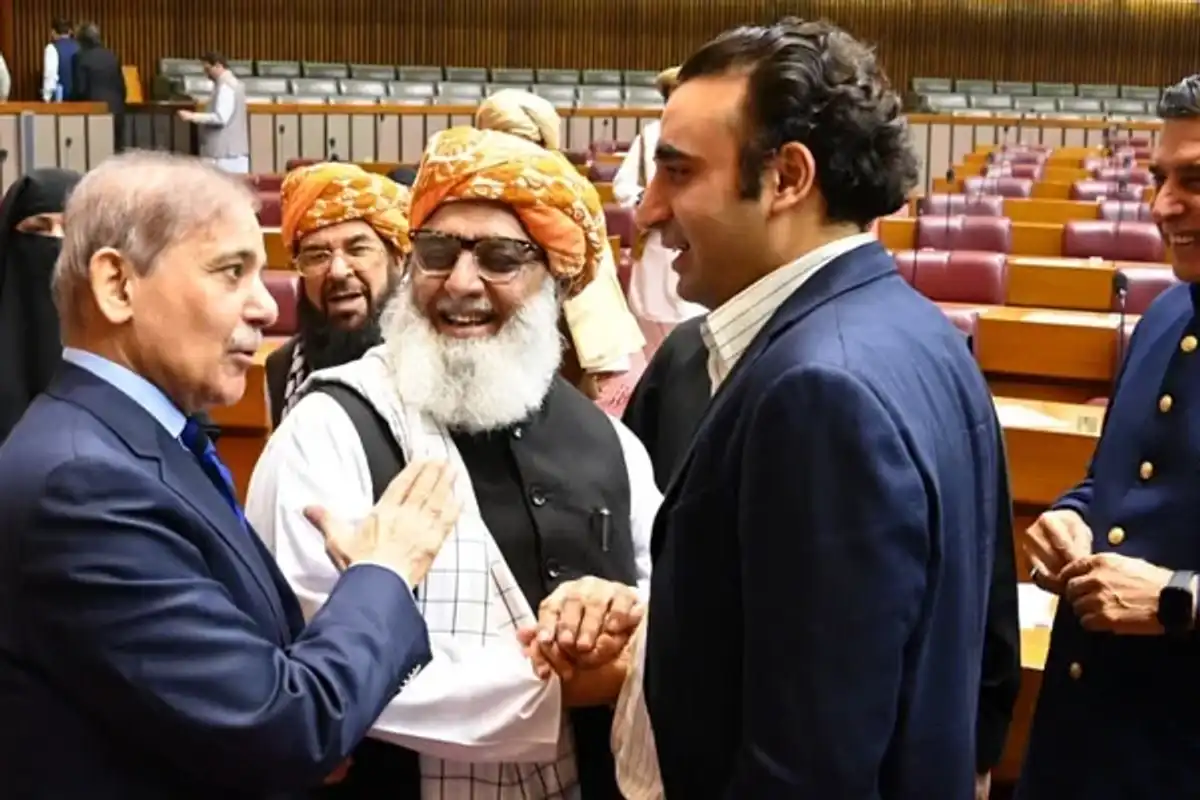
PM Shehbaz Sharif (left) interacts with JUI-F chief Maulana Fazlur Rehman (centre) and PPP Chairman Bilawal Bhutto-Zardari in the National Assembly on October 21, 2024.
National Assembly of Pakistan
Pakistan’s parliament passed a contentious constitutional amendment bill in the early hours of Monday, following weeks of delays and opposition protests. Both the Senate and National Assembly held marathon debates leading up to the vote.
Prime Minister Shehbaz Sharif’s administration had been attempting to pass a set of constitutional changes, which the opposition and legal experts argue will give the executive greater control over judicial appointments. The government denies these claims, insisting the amendments are necessary reforms.
The bill proposed that the appointment of Pakistan’s chief justice will be made by a 12-member parliamentary committee for a three-year term. The top judge will retire upon reaching the age of 65, according to the draft amendment.
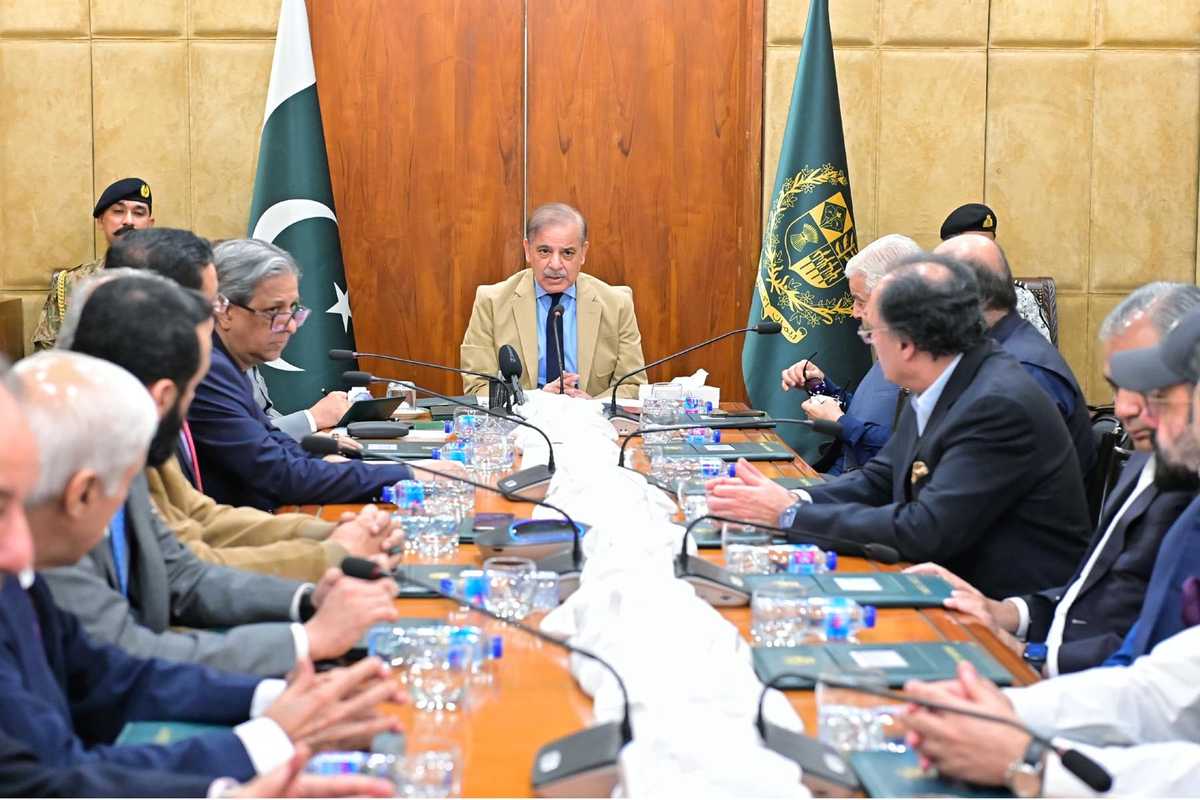
The much-anticipated Senate session began at 5 p.m. on Sunday, hours after the federal cabinet approved the draft. The bill passed in the upper house with 65 members voting in favor and only four opposing, securing the two-thirds majority required for a constitutional amendment.
“Sixty-five members are in favor of the motion, and four members are against it,” Senate Chairman Yousuf Raza Gilani announced after the vote. “The motion is carried by the votes of not less than two-thirds of the Senate’s total membership, and consequently, the bill stands passed.”
Law Minister Azam Nazeer Tarar, who tabled the bill, said it would also allow for the establishment of constitutional benches within the Supreme Court and in provincial courts.
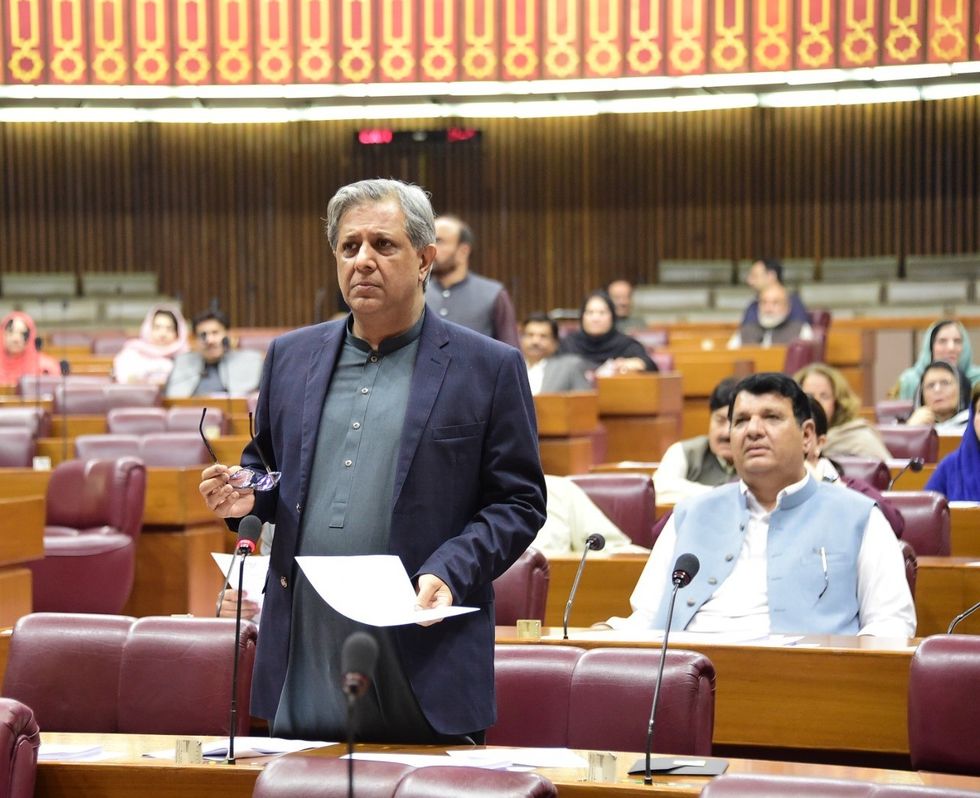
PTI Senator Ali Zafar, who spoke for over 23 minutes, argued that national consensus is essential when introducing or amending the Constitution.
"If there is no public consent, the nation moves backward. Agreement is crucial for constitutional amendments," he said, addressing the upper house.
He further criticized the environment in which the debate was taking place, stating that several members were absent due to fear of arrest.
"Some of our colleagues are here, while others are afraid to come due to the fear of being detained. Forced disappearances and coercive tactics to secure votes do not represent true consent. This entire process is a violation of the Constitution and its principles," Zafar asserted.
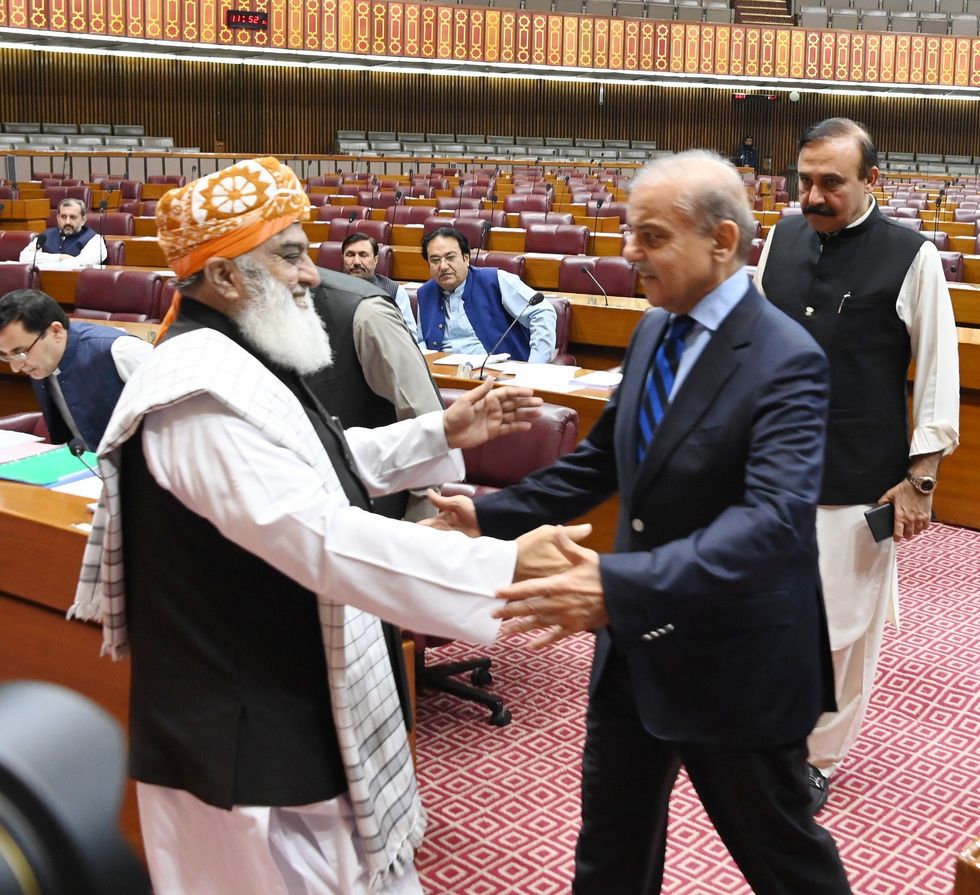
He said that PTI is not part of the process as it was not allowed to consult with its founder, Imran Khan. "Constitutional amendments are made in the interest of the public,. However, there are people in the house who haven't even read the bill. If the bill is passed in this manner, it will be a stain on democracy," he further said.
PPP’s Sherry Rehman responded by addressing the opposition’s concerns and emphasizing her party’s role in shaping Pakistan’s Constitution. "We’ve listened to the opposition’s points, but PTI did not offer any suggestions for the constitutional amendment during committee meetings," she said.
Sherry reminded the house that it was the PPP that delivered a unanimous Constitution to the country. "We passed the 18th Amendment and Bilawal Bhutto-Zardari has taken a clear stance on constitutional amendments across various forums."
She also mentioned the abolition of Article 58(2)(b), which was achieved through consensus among political parties, adding, "Politics is not just a piece of paper. Does Parliament not have the right to legislate? We have removed the black serpent, and we won’t leave any political vacuum behind."
In total, the opposition was given 53 minutes to voice its objections. The government side, represented by PPP’s Sherry Rehman, MQM’s Faisal Sabzwari, and PML-N’s Irfan Siddiqui, spoke for just 18 minutes.
There were also reports that PTI lost contact with 11 of its key members, including two senators and nine National Assembly members.
PTI members go 'missing'
-
According to PTI sources, party leaders have reported being unable to contact several lawmakers despite repeated attempts. Opposition Leader Omar Ayub confirmed that at least seven members are unreachable, while PTI Chairman Barrister Gohar Ali Khan acknowledged difficulties in reaching two senators.
Among those missing are Zain Qureshi, Zahoor Qureshi, and Brigadier (retired) Aslam Ghuman. Other members reportedly out of contact include Usman Ali, Riaz Fatyana, Muhammad Miqdad Ali Khan, Aurangzeb Khan Khichi, and Mubarak Zeb Khan.
While PTI did attend the session, its members abstained from voting. Despite opposition concerns, the bill’s 22 clauses were passed unanimously by the remaining Senate members. The session was adjourned until Tuesday at 4 p.m.
Midnight National Assembly session
Shortly after the Senate session, lawmakers gathered at the National Assembly for a continuation of the debate. JUI-F chief Maulana Fazlur Rehman and PML-N President Nawaz Sharif were in attendance as Federal Law Minister Azam Nazeer Tarar presented the bill in the lower house.
The National Assembly’s session, chaired by Speaker Ayaz Sadiq, began near midnight. As the day ended, the session was briefly suspended before resuming a few minutes later. By then, it was technically Monday, reflecting the government’s urgency in pushing through the amendments.
As the voting process began, opposition parties Pakistan Tehreek-e-Insaf and Sunni Ittehad Council initially took part in the voting process but later staged a walkout.
The numbers game
In the Senate, 65 members voted in favor, and only four opposed, securing the two-thirds majority required for a constitutional amendment.
The main opposition party, Pakistan Tehreek-e-Insaf (PTI), boycotted most of the clause-by-clause vote despite attending the session.
The bill received support from various political parties, with the PPP contributing 23 votes, the PML-N 19, and the Jamiat-e-Ulema Islam-Fazl (JUI-F) five. Two senators from BNP-M, Muhammad Qasim and Naseema Ehsan, broke party ranks to support the bill.
Additional backing came from coalition partners, with four BAP senators and three from MQM-P voting in favor. The ANP provided three votes, while the National Party and PML-Q each contributed one.
Four independent senators, including former caretaker Prime Minister Anwaarul Haq Kakar and Interior Minister Mohsin Naqvi, also supported the bill.
In the midnight National Assembly session, the amendments were approved clause by clause. A total of 225 members voted in favor, surpassing the required 224 for passage, while 12 members from the PTI and SIC opposed the bill and left the chamber during voting.
The ruling coalition supplied 211 votes, with additional support coming from eight JUI-F members and six independents, including some PTI-backed candidates. Notable among these were Usman Ali, Aurangzeb Khichi, Mubarak Zeb, and Zahoor Qureshi, along with PML-Q's Chaudhry Ilyas.
‘Iftikhar Chaudhry the real black serpent’
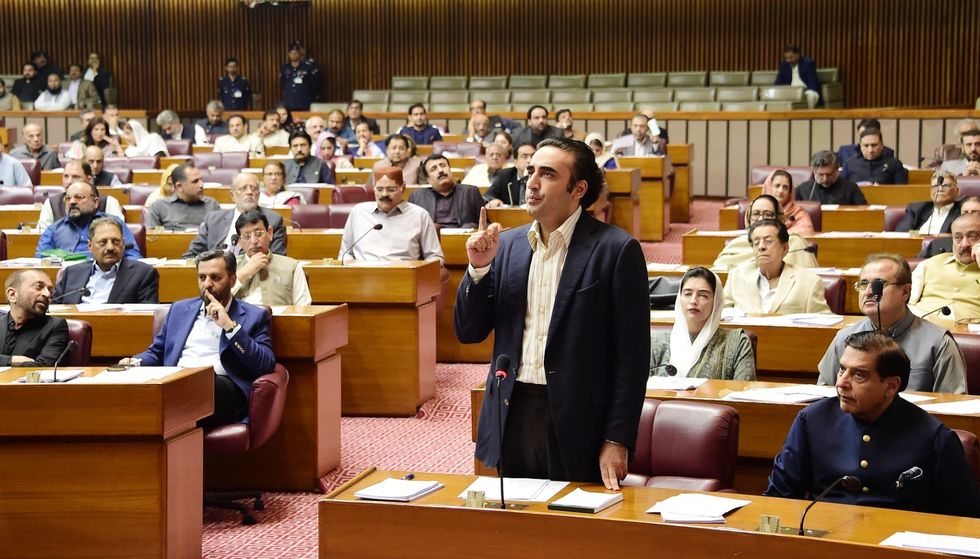
PPP Chairman Bilawal Bhutto-Zardari, while addressing the National Assembly, praised Maulana Fazlur Rehman for his key role.
“The greatest contribution to the success of the amendment bill comes from Maulana Fazlur Rehman,” Bilawal stated. “Aside from my father, if I consider anyone a leader in politics, it is Maulana Fazlur Rehman.”
He also emphasized the importance of the Constitution, saying, “After the Holy Quran, the most sacred book is Pakistan’s Constitution. In 1973, we set aside our differences to give this land its Constitution.”
Bilawal expressed concerns over the judiciary’s inconsistency in protecting the Constitution. “Our judiciary only respects the Constitution during democratic periods, but it has consistently supported dictators,” he claimed. “This very judiciary allowed a dictator to run for president while in uniform. There was also a dark period led by Iftikhar Chaudhry.”
He addressed the opposition’s remarks, saying, “Our friends in the opposition talk of a ‘black serpent.’ To me, the real black serpent is Iftikhar Chaudhry. He couldn’t deliver justice to our prime minister.”
He clarified the bill’s stance on judicial appointments, stating, “We are not taking away the judiciary’s power to appoint judges but reclaiming the Parliament’s rightful authority. Pakistan will no longer be the only country where judges appoint other judges.”
He also acknowledged several amendments proposed by the opposition, including those from the Council of Islamic Ideology and clauses regarding the elimination of interest. “We welcome these amendments and hope our friends in the opposition will help pass them unanimously,” he added.
‘From respect for votes to respect for boots’
Leader of the Opposition Omar Ayub Khan delivered a scathing critique of the process leading up to the constitutional amendments.
He highlighted what he described as the degradation of democratic values, using the phrase, “From respect for votes to respect for boots,” a reference to the perceived shift from electoral legitimacy to the influence of undemocratic forces.
Ayub criticized the acknowledgment of several individuals during the session, sarcastically suggesting that the government should have also thanked “unknown individuals” and the "Vigo trucks" for forcibly bringing detained opposition members to the assembly.
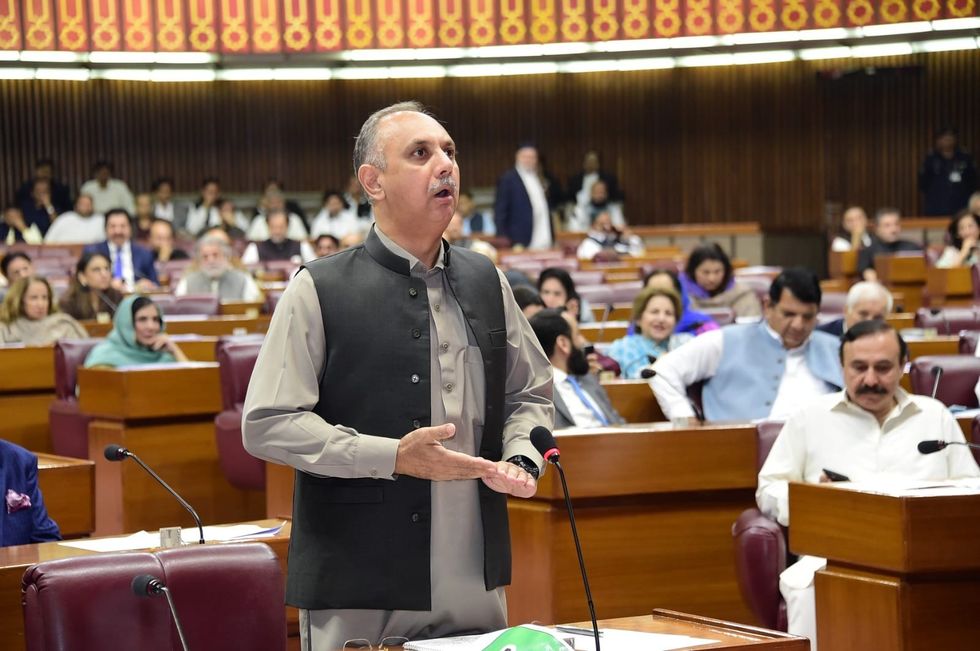
“Five of our members were beaten and kept on the fourth floor [of National Assembly],” he claimed.
“This process is highly corrupt, and today, the final blow to the independent judiciary is being delivered. This government, which sits here with a stolen mandate, does not represent the people,” Ayub concluded, vowing that the opposition would remain strong and resist further attempts at undermining the judiciary and democratic processes.
‘Restoring the dignity of Parliament’
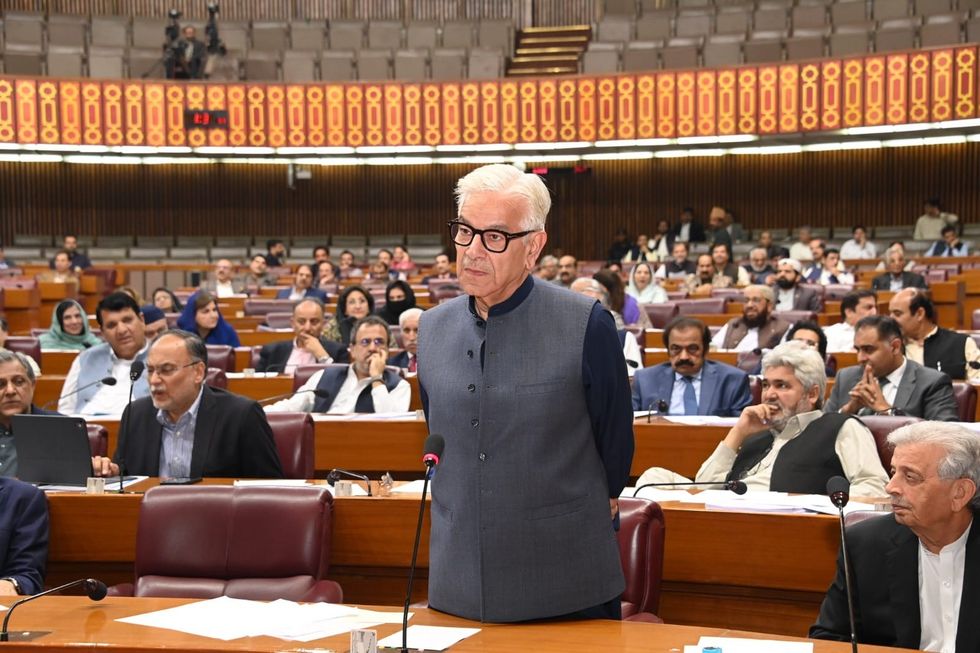
PML-N’s Khawaja Muhammad Asif, during his speech, emphasized that the sole purpose of the 26th Constitutional Amendment is to restore the dignity and prestige of the Parliament. “The Constitution grants the power of legislation only to the Parliament,” he said, adding that this amendment aims to strengthen the legislative body.
Asif criticized the shifting loyalties of some politicians, stating, “Time and political parties may change, but a person’s conscience should not.”
“Politicians have made many sacrifices,” Asif noted, reminding the assembly that former prime minister Nawaz Sharif was disqualified for not receiving a salary from his son.
He further mentioned that Pakistan's political direction is still guided by the Charter of Democracy and lauded Chief Justice Qazi Faez Isa for restoring the judiciary's dignity.
Asif closed his remarks by highlighting the sacrifices of politicians and calling for the judiciary to be held accountable: “Politicians are imprisoned, lose their lives, and face disqualification—can the judiciary not be held accountable?” He expressed concern over the resistance to amendments that seek to empower Parliament.
Nawaz steals the show
At the conclusion of Asif's speech, PML-N President Muhammad Nawaz Sharif recited a poem. Following the recitation, members of the assembly applauded by banging their desks in appreciation.
Naz o andaaz say kehtay hain kay jeena hoga (With charm and grace, they say I must live)
Zehar dete hain to kehte hain kay peena hoga (When they offer poison, they say I must drink)
Jab main peeta hoon to kehte hain k marta bhi nahi (When I drink, they say, "Why don't you die?")
Jab main marta hoon to kehte hain jeena hoga (When I die, they say I must live again)
In a light-hearted moment, Maulana Fazlur Rehman drew laughter from the assembly by making a correction to Nawaz Sharif's verse.
'Prevented murder of democracy'
During the session, Maulana Fazlur Rehman addressed concerns regarding the extension of judges' tenures, advocating for constitutional reforms.
He recalled the positive reception of the Charter of Democracy signed between the PML-N and PPP in 2006, stating, “The CoD is neither a substitute for the Constitution nor for the law; it is merely a moral agreement.”
Fazl noted that his efforts in creating a consensus in constitutional amendments included collaboration with PTI. He expressed commitment to not recognizing a one-unit system, stating, “Today, we are moving towards a positive direction.” He remarked on PTI's abstention from voting as a form of protest.
Furthermore, he conveyed solidarity with Nawaz Sharif in the face of any injustices, saying, “If injustice is done to Nawaz Sharif, I will stand shoulder to shoulder with him.” Rehman also condemned the harsh treatment faced by the founder of the PTI.
JUI-F chief mentioned that the initial draft of the amendments consisted of 56 clauses, which underwent trimming to prevent the "murder of democracy."
After the marathon session, the National Assembly passed the constitutional amendments with a clause-by-clause approval of the bill.







Comments
See what people are discussing